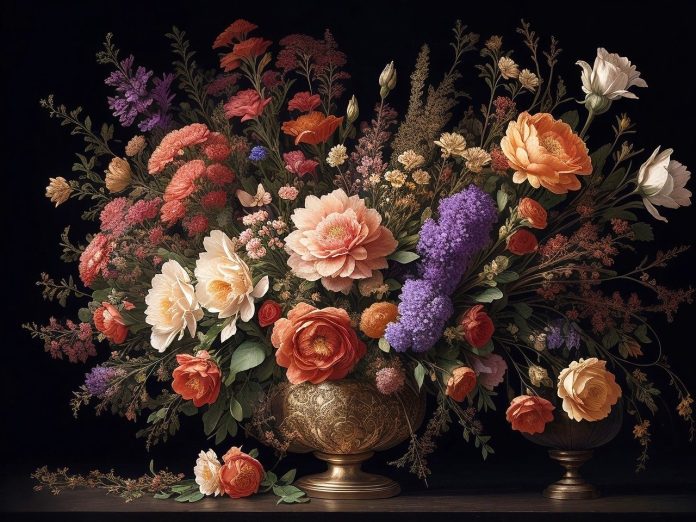“The Age of Innocence” by Edith Wharton: Society, Desire, and the Human Heart
Introduction
“The Age of Innocence” by Edith Wharton is a literary masterwork that defies easy categorisation, blending elements of social commentary, historical fiction, and romantic tragedy. Published in 1920, Wharton’s meticulous depiction of Gilded Age New York, coupled with her exploration of intricate human emotions and relationships, places it within the realm of both social and historical fiction. This extraordinary novel showcases Wharton’s keen observations and nuanced characterisations, offering readers a compelling commentary on the human condition. In 1921, Edith Wharton received the Pulitzer Prize for Fiction for “The Age of Innocence,” making her the first woman to receive this prestigious accolade. The Pulitzer Committee praised the novel for its wholesome environment of American life and the exemplary standards of American manners and character. This recognition further solidified Wharton’s place in literary history and underscored the novel’s significant impact. Through its exploration of timeless themes such as passion, selflessness, and the quest for authenticity, “The Age of Innocence” continues to be a beloved book, encouraging readers to contemplate the intricacies of human nature and the enduring quest for meaning in a changing world.
The Narrative Landscape of “The Age of Innocence” by Edith Wharton
“The Age of Innocence” by Edith Wharton transports readers to the opulent world of New York City in the Gilded Era, where societal norms and personal desires clash in a captivating tale of love and duty. Against the backdrop of a society governed by rigid social codes and expectations, Wharton crafts a story that intricately explores the nuances of human nature. Through the lens of protagonist Newland Archer, readers embark on a journey fraught with tension as Archer grapples with his feelings for the unconventional Countess Ellen Olenska amidst the suffocating constraints of his privileged upbringing. Wharton’s prose skillfully captures the essence of an era marked by opulence and restraint, inviting readers to explore themes of passion, sacrifice, and the quest for authenticity in a world where conformity reigns supreme. As readers immerse themselves in the lives of Wharton’s meticulously crafted characters, they are compelled to confront the timeless dilemmas that define the human experience.
Society’s Grip on Individuals
Wharton’s portrayal of society’s grip on individuals in “The Age of Innocence” goes beyond mere observation; it is a masterful examination of the power dynamics and psychological implications of societal expectations. Within the rigid framework of Gilded Age New York, social status and reputation serve as the currency of acceptance, dictating every facet of one’s existence. Wharton deftly captures the suffocating atmosphere of conformity, where even the slightest deviation from the prescribed norms invites scrutiny and judgment. Through the character of Newland Archer, readers are immersed in the inner turmoil of individuals torn between the pursuit of personal fulfilment and the relentless pressure to conform. As Archer confronts his feelings for the unconventional and free-minded Countess Ellen Olenska, Wharton exposes the delicate balance between passion and duty, highlighting the profound impact of societal constraints on individual agency. In this richly textured narrative, Wharton encourages readers to grapple with the intricacies of human nature and the consequences of societal expectations, urging the audience to question the actual cost of conformity in the pursuit of authenticity.
Exploring Desire and Duty in “The Age of Innocence” by Edith Wharton: Newland Archer and Countess Ellen Olenska
In “The Age of Innocence,” Edith Wharton intricately weaves a tale of desire and duty through the lives of Newland Archer and Countess Ellen Olenska. Newland, a gentleman lawyer born into privilege, initially finds solace in the prospect of marrying May Welland, a paragon of societal ideals. However, the arrival of May’s cousin, the alluring and enigmatic Countess Ellen Olenska, disrupts Newland’s carefully constructed world. Ellen’s defiance of societal norms and her magnetic presence awakens a forbidden longing within Newland, challenging his adherence to convention. Meanwhile, Ellen grapples with her inner turmoil, torn between her burgeoning feelings for Newland and her loyalty to May. As their bond deepens amidst the backdrop of Gilded Age New York, Wharton expertly depicts the intricacies of desire, duty, and sacrifice. Despite their genuine affection, societal expectations ultimately compel Ellen to sacrifice her happiness, underscoring the pervasive influence of societal norms. Through the complex interplay of these characters, Wharton invites readers to contemplate the enduring interactions among individuals and the profound impact of societal pressures on individual freedom and fulfilment.
Ellen Olenska’s Defiance: Challenging Societal Norms
Countess Ellen Olenska’s defiance of societal norms reverberates throughout the pages of “The Age of Innocence,” leaving an enduring imprint on both the storyline and the characters within it. Wharton masterfully portrays Ellen’s demeanour and conduct as a direct challenge to the rigid conventions of Gilded Age New York society. In a pivotal scene, Ellen’s quiet composure and unassuming nature disarm Newland Archer’s irony and disrupt his entrenched beliefs. As Newland observes Ellen’s faintly amused smile and her effortless disregard for societal expectations, he is drawn into her orbit, captivated by her defiance and authenticity. Ellen’s ability to take things for granted despite her scandalous reputation catalyses Newland’s introspection, prompting him to confront the hypocrisy of his privileged existence. Through her understated yet powerful presence, Ellen becomes a symbol of freedom and individuality, challenging Newland to reassess his desires and obligations in the face of societal pressure. In this way, Ellen Olenska emerges as a transformative force, reshaping not only Newland’s perceptions but also the very fabric of the society in which they live.
The Temptation of Experience in “The Age of Innocence” by Edith Wharton
In “The Age of Innocence,” Edith Wharton skillfully juxtaposes the character of Ellen Olenska as a symbol of experience against the backdrop of a society steeped in tradition and conformity. Having weathered the storms of a failed marriage and the harsh judgment of society, Ellen emerges as a beacon of resilience and defiance. Unwilling to be confined by the expectations of her social circle, Ellen boldly challenges the status quo, refusing to bend to the pressures of decency and decorum. Her mere presence acts as a catalyst for Newland Archer’s awakening, stirring within him a longing for a life beyond the constraints of his privileged upbringing. Through their interactions, Ellen becomes a compelling embodiment of forbidden passion, tempting Newland to explore the depths of his desires and break free from the shackles of convention. However, beneath her facade of strength and independence, Ellen remains a vulnerable figure, torn between her yearning for autonomy and the relentless scrutiny of a society that views her with suspicion. In this complex interplay of desire and vulnerability, Wharton invites readers to ponder the actual cost of embracing one’s individuality in a world governed by rigid social expectations.
Wharton’s Vivid Prose
Wharton’s vivid prose transcends mere storytelling, transporting readers to the vibrant ambience of Gilded Age New York with unparalleled detail and nuance. With a masterful stroke, she paints a portrait of elite society that pulsates with life, from the glittering ballrooms of Fifth Avenue to the tranquil expanses of the countryside. Each scene is meticulously crafted, evoking a sensory experience that envelops readers in the sights, sounds, and emotions of the era. Through her keen eye for detail and atmospheric descriptions, Wharton invites readers to immerse themselves in the lives of her characters, feeling their victories and setbacks as if they were our own. In this richly textured narrative, Wharton captures the essence of a society on the cusp of transformation, where tradition clashes with modernity and innocence gives way to experience. Through her vivid prose, she breathes life into a bygone era, inviting readers to journey through time and explore the intricacies of human existence against the backdrop of a changing world.
Inner Conflicts and Moral Dilemmas in “The Age of Innocence” by Edith Wharton
“The Age of Innocence” transcends its portrayal of societal norms to delve deep into the inner conflicts and moral dilemmas that shape the human experience. Wharton’s narrative serves as a poignant exploration of human nature and the complexities of the human heart, inviting readers to grapple with the intricacies of desire, duty, and sacrifice. At the heart of the novel lies the internal struggle of Newland Archer, torn between the fiery passion he feels for Ellen and the sense of duty that binds him to May. His predicament epitomises the broader tensions within society, where individuals must navigate the conflicting demands of personal happiness and social conformity. As Wharton deftly portrays these inner conflicts, readers are drawn into a world where love and loyalty collide, forcing characters to confront the moral dilemmas inherent in their social roles. Through her nuanced portrayal of these universal themes, Wharton invites readers to reflect on the nature of love, devotion, and the pursuit of significance in a world governed by convention. In doing so, she compels the audience to confront their own inner conflicts and moral dilemmas, urging them to explore the depths of the human heart with empathy and introspection.
The Legacy of Wharton’s Masterpiece
Wharton’s masterpiece, “The Age of Innocence,” transcends its historical setting to resonate with readers across generations, making an indelible impression on the literary world. At its core, the novel is a timeless exploration of universal themes such as love and longing, duty and desire. Wharton’s keen insight into the human condition with her masterful storytelling continues to captivate with enchanting passion and beauty, drawing the readers into a world rich with emotion and complexity. More than a century after its publication, “The Age of Innocence” remains as relevant and compelling as ever, offering a poignant reminder of the timeless ability of literature to shed light on the intricacies of human existence. In a world where questions of identity, freedom, and the quest for fulfilment continue to echo, Wharton’s exploration of society’s constraints and individual desires serves as a timeless affirmation of the enduring relevance of great literature. Through her insightful portrayal of human nature, Wharton encourages people to contemplate their own experiences, offering a profound glimpse into the depths of the human heart. As the audience continues to grapple with the complexities of existence, “The Age of Innocence” stands as a beacon of insight and inspiration, leading them on a path of self-exploration and comprehension.





